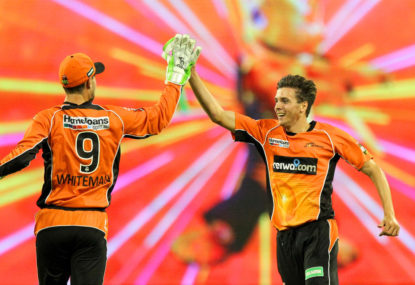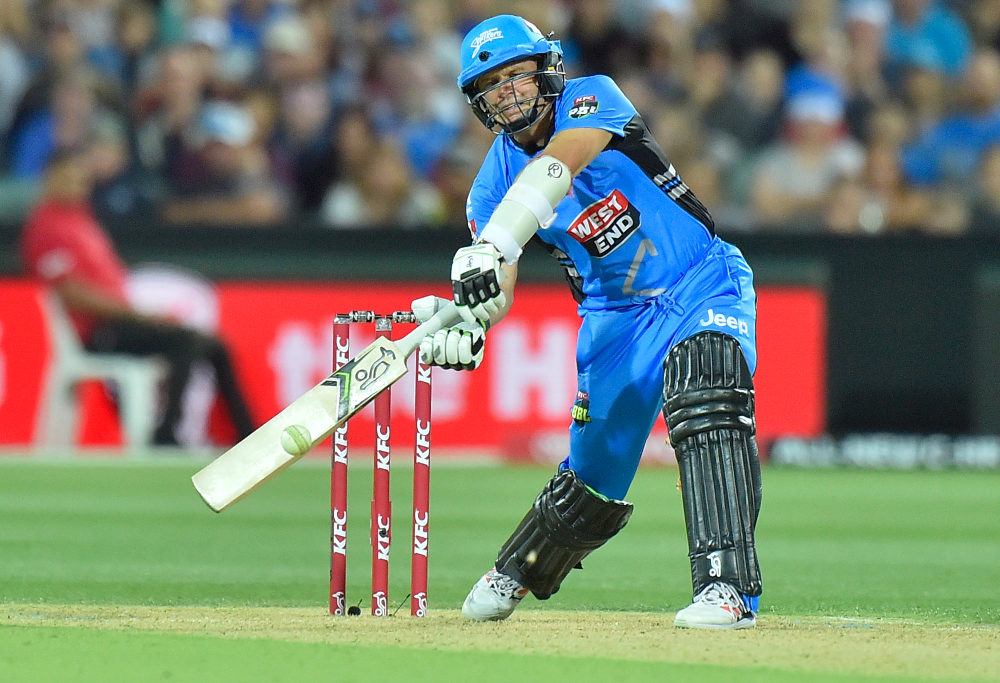The possibiliy of Jofra Archer's career coming to an early end will rob cricket of a bowler with so much talent
While a premature retirement isn’t the solution, he or England want, he may be forced into it if he can’t maintain a long run of matches.

Isabelle Westbury’s article yesterday was, as ever, worth reading. In a nutshell, she argued the time had come, “for administrators, networks and regulators to create a better framework, with guidelines, even rules, for those it employs.”
The need was becoming more pressing because of the increasing incidents, “when the atmosphere gets uncomfortable and professional duties visibly muddied.”
Her argument was the fans deserve better. But to deserve better, the fans have to demand it, and they have to be clear about what they are demanding. They also have to consider how they demand better.
I’m placing myself outside the view of a fan, not because that is an inaccurate description of what I am, but because of the necessity of seeing this issue through alternative points of view.
Fans are dependent on players, commentators, selectors, coaches and administrators.
Professional cricketers provide fans with the cricket they want to watch. Commentators interpret the game and impose their narrative on events for fans when the cricket starts speaking a different language to what the fans understand.
Selectors pick the players fans watch on their screens.
Coaches and other support staff help ensure the players operate at maximum possible capacity. Administrators are needed to run the game properly.
But fans are not dependent on the same people filling both roles. For that to be deemed a need, the same person has to be the best person for both roles.
That same person also has to be capable of doing both jobs properly despite the self-limiting nature of holding both jobs.
Westbury nominated the introduction of Australian coach Darren Lehmann to the BBL commentary team as the point where the line was crossed because it meant he had to talk about players who had recently been dropped from the Australian team, and then the passing of tactical information onto Brad Hodge by Ten.
But the problem is that if the turning point is “when the atmosphere gets uncomfortable and professional duties visibly muddied”, what about if professional duties are as muddied, but that muddying is not as visible and therefore the atmosphere is not as uncomfortable? Is it ok then, even if it unknowingly affects the overall story?
You may have guessed my white line comes before where Westbury draws hers. Undoubtedly, that is informed by our differing personal experiences, which she honestly related to in her article. The need to make the most of one’s opportunities is a strong one, and certainly not limited to people who work in the cricket world.
What we seem to agree on is that at the moment, the white lines aren’t clear or tight enough, and there’s always the temptation to loosen them. Kevin Pietersen’s commentary while he’s batting, for example, is reason enough for temptation.
Honesty about the different roles is probably the most potent argument for keeping the status quo. We know who so-and-so is affiliated with. As Vincent Hugh said the comments:
We know that Mark Waugh has ties to the Thunder, Gilly to Scorchers, Flemmo to the Stars, Roy to the Heat. Its (sic) made purely obvious to us and I would prefer it that way. They have the best insight on the teams playing and they will unashamedly let you know.
Parochial bias is not a reason to rule a commentator out of contention by itself. After all, it does exist. Pretending it isn’t there doesn’t make it go away.
Nationalism and localism as it is expressed in sport is better than in other areas of human endeavour, especially in the BBL, as Hugh alludes to, there is a contrast in which commentator is closest to which team. The sport fan doesn’t get erased out of you.
Nor are attacks on whichever commentator you happen to dislike the most really the point in this conversation. You don’t need to be nasty to make a good point. Besides, even if you disregard the politeness argument, there is a more practical point.

Even if you had a genie who could remove the commentator dislike the most in the world, the overall problems surrounding conflict of interest would be untouched if that is all that you did.
What about social media?
Social media means that people don’t stop commentating. For example, Ten has often featured the Twitter views of Michael Vaughan, among others. Imagine Vaughan was coaching a BBL team.
Any of them, it doesn’t matter which. Why would it be better for his opinions to be on Twitter rather than in the commentary box?
Because commentary boxes like Ten operate in a privileged position. They come with our cricket. You can add Vaughan’s views to the cricket, like you might add wasabi to a sushi roll. But removing the views of a commentator who is part of the commentary team is like trying to remove the seaweed and the rice. It is impossible.
You can mute the television, you might argue, and you would be right. I can. Unless I want to listen to some Tchaikovsky, I don’t tend to. But that’s missing the point. The point is, muting the television is like stuffing the aforementioned sushi roll into the most overpowering hamburger you can think of and pretending it no longer exists.
Superficially, you would be right. You would no longer be able to taste it. It would fulfil your goal. But the sushi roll would still be there.
There would be no obvious protest to the outside world. Unless you decided to protest to the world about it. Even then, there would have to be something special about the protest about it for to have significance on its own in among all the white noise.
Fans may deserve better than conflicted commentary teams. But only if those fans speak up and say so, and what they do want, and in a way they would be happy enough to repeat in any company.